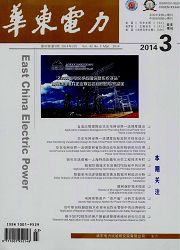

 中文摘要:
中文摘要:
化石能源短缺和节能减排的双重压力促使中国能源发展方式亟待转型调整。随着新能源发电的规模化并网应用,传统电网正在逐步向着新能源电力系统方向演变,并对其运行控制带来显著的影响。作为一类虚拟可控资源,在新能源电力系统中考虑需求侧响应(DR)可有效克服新能源发电的间歇性问题,提高电网对新能源的利用效率,实现源荷互动与协同增效。文中首先简要介绍了新能源电力系统的基本特征及内涵理念;其次,根据资源的分类及特点,总结了不同类型DR对新能源电力系统的潜在贡献及作用影响;在此基础上,从规划、运行、控制、评价这4个维度对新能源电力系统中DR问题的研究情况进行了总结,并就上述领域值得进一步关注的研究方向给出了相关建议;最后,结合当前国情,对推动新能源电力背景下DR应用及其保障机制建设提出了一些建议。
 英文摘要:
英文摘要:
Fossil energy shortage and the goals of energy-saving and emission reduction are making it imperative to make adjustment in energy development strategies.With the large-scale connection to new energy generation,traditional power grids are evolving into alternate electrical power systems to,challenge their operational control.As a category of virtual controllable resource,introducing demand-side response (DR) can effectively overcome the problem of intermittency of new energy generation,while improving the utilization efficiency in the grids.Therefore,it is an important issue worth further discussion. This paper firstly introduces the basic features and implication of alternate electrical power systems with renewable energy sources.Then the potential contribution and effects of different demand side resources in such systems are treated according to their inherent characteristics.The enabling technologies of DR and the information about their application across the world are also summarized.On this basis,the status quo concerning DR studies in alternate electrical power systems is analyzed from five facets:planning,operation,control,evaluation,and market mechanism.Subsequently,we analyze the nodus that existed and point out the research directions worth further exploration in the above fields.Finally,based on the actual conditions of China,some suggestions are put forward for commercial application of DR and its safeguard mechanism in the context of the new energy era.
 同期刊论文项目
同期刊论文项目
 同项目期刊论文
同项目期刊论文
 期刊信息
期刊信息
